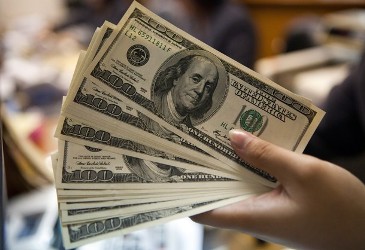U.S. will encourage donors to cover Sudan’s financial gap , diplomat
August 8, 2012 (WASHINGTON) — Washington will encourage the international community to contribute to cover Sudan’s financial gap created by the independence of South Sudan and the termination of oil sharing arrangements agreed in the 2005 peace agreement.

Washington, even if it was the major sponsor of the Sudanese government-South Sudan rebels peace talks in 2003-2005 that led to the process Comprehensive Peace Agreement, failed to some extent to fully promote its implementation or contribute directly to resolve the outstanding issues due to the sanctions and its strained relations with Sudan.
However, it was agreed since long years that in the case South Sudanese decide by referendum to establish their own independent state, the international community will support Sudan financially to overcome economic difficulties resulting from South Sudan’s secession.
To address Sudan’s financial gap resulting from the loss of South Sudan’s oil, it was agreed that Khartoum has to take austerity measures to cover a third, Juba will pay a third ($3.028 billion) and the international community pays the remaining third. A joint delegation will tour world capitals to ask their contribution.
A US diplomat told the Financial Times in its Wednesday’s edition that Khartoum wants Washington to remove the economic sanctions stressing that such measure cannot be taken without resolving Darfur and South Kordofan and Blue Nile conflicts.
“They (Sudanese) have to understand that they and South Sudan and the AU and others will go around the world urging friends of Sudan to do this. The US would be all for it but it can’t do it because it has too many sanctions,” the diplomat said.
US Congress, during the past years, voted different bills linking the lift of sanctions to the resolution of Darfur conflict, full implementation of the 2005 peace agreement with South Sudan, including Abyei and the two areas of South Kordofan and Blue Nile.
An African Union official told the British financial daily, that Sudan demanded that Washington does “its part by encouraging other states to contribute”.
“The US has some leverage on this because most financial transactions are in dollars and subject to sanctions. If the US doesn’t grant waivers it can make life difficult for the Kuwaitis and Qataris”, he said of two Arab countries used to support Sudan generously.
US special envoy Princeton Lyman, speaking at the US Senate Foreign Relations Committee hearing on 14 March 2011, said that Washington would send an envoy to the Arab countries to discourage them from providing financial support o Khartoum.
He pointed out that Khartoum’s allies namely China and the Arab countries should be convinced to press Khartoum on the humanitarian access, to the SPLM-N held areas in South Kordofan and Blue Nile, in return for financial assistance.
On 1 August, speaking at the Atlantic Council, a foreign policy think tank in Washington Lyman however called to normalise bilateral relations for the benefit of the two nations.
The special envoy emphasised that Sudanese government has first to embrace democracy and stop human rights violations and allow aid groups to reach civilians in the rebel held areas in the two southern Sudanese states.
In his long intervention, where he called to improve bilateral relations with Khartoum before the oil deal between Sudan and South Sudan of 3 August, Lyman added that this cannot be done without an agreement over the unresolved issues with Juba.
The debate also provided Lyman with an opportunity to explain his opposition to the calls for regime change in Khartoum and the need to support the rebel alliance, Sudan Revolutionary Front (SRF), to topple Bashir’s regime.
He said he was not against political change in Sudan but he is opposed to civil war in the traumatised country.
“I’m not for civil war in Sudan”, he said. Adding that Sudan has suffered two civil wars in South Sudan and in Darfur where over two million people were killed and Sudanese do not want that again.
“I do not think that is the right recommendation, and I do not think that would work”, the US diplomat said, stressing “It is just dividing the country even more.”
(ST)
